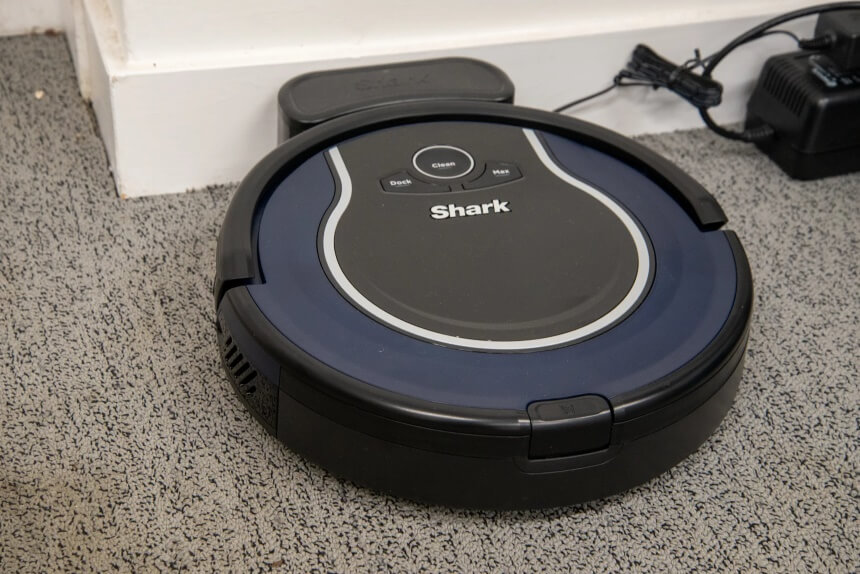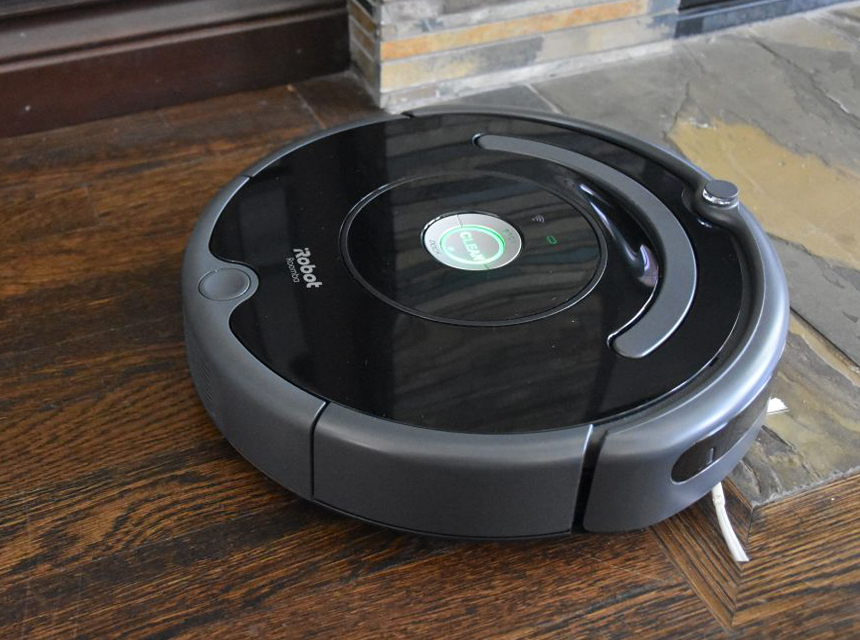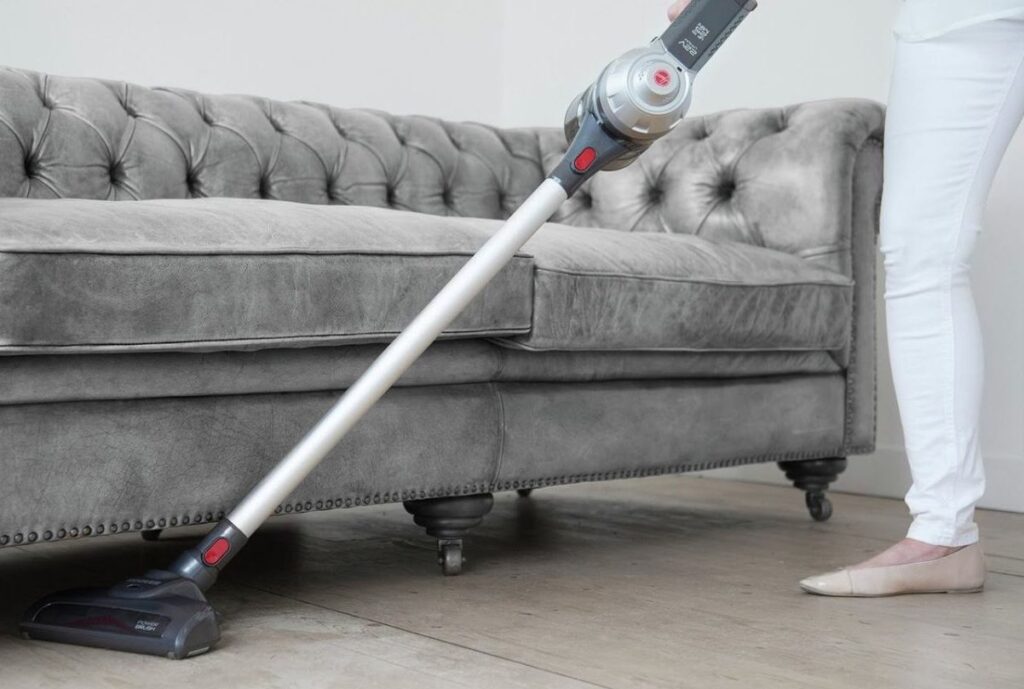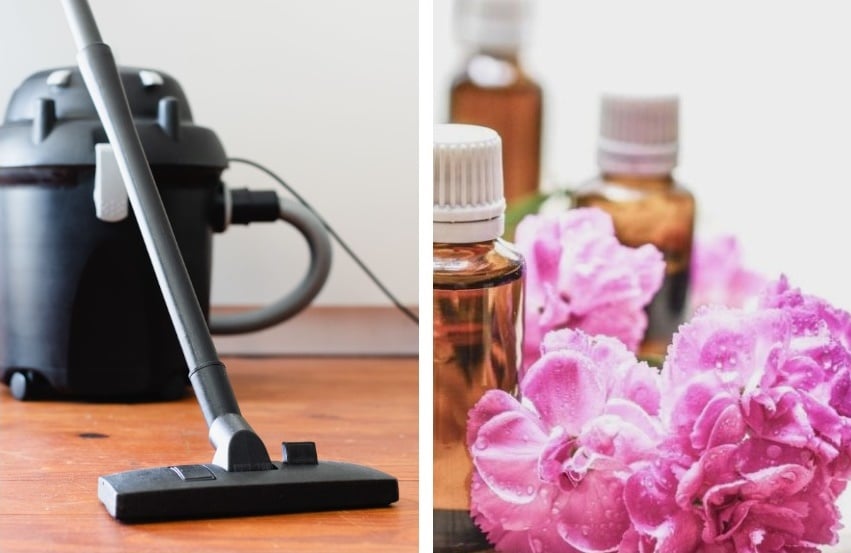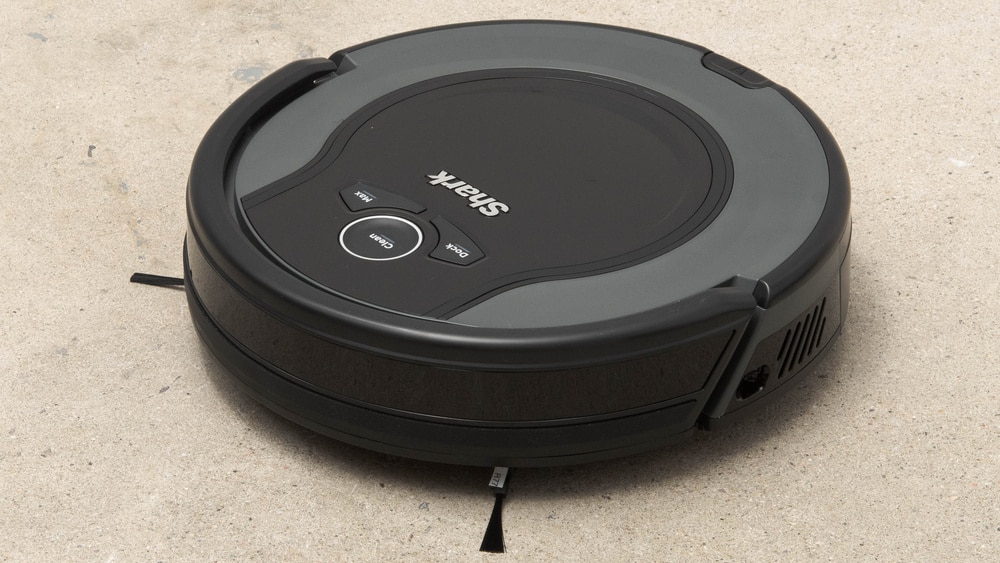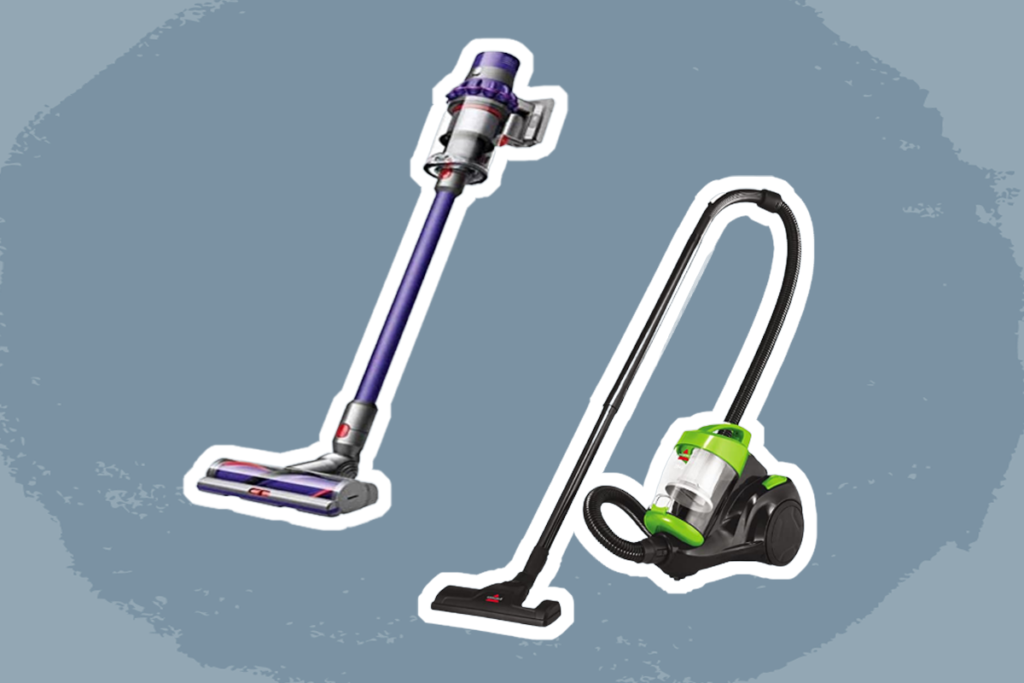Dust, dirt, pet dander, grime, bacteria, shed skin cells and other debris can accumulate and cause diseases, allergies and damage to your floor if you rarely clean your home. It could also provide a fertile breeding ground for pests, mold and mildew. So, how often should you vacuum to maintain a clean space and to prevent allergies and infections? The frequency will be determined by several factors such as the type of flooring you have.
It is generally recommended to vacuum at least once per week. If you have pets, then you should vacuum daily to remove pet hair and dander. Another factor that should play a role in how often you vacuum is room usage. Spaces with a lot of traffic and activity will require frequent vacuuming. In this guide, we have also included tips on how you can improve vacuuming for optimal air quality.
We are going to discuss how often you should vacuum carpets, hardwood floors and spaces that are rarely used. We will also explain whether having pets has any impact on vacuuming frequency.
Well, how often should you vacuum if you have a cat or other pets? Pets are adorable but the protein in their shed skin cells, saliva and dander can cause allergies or worsen asthma symptoms. When your furry pets go outside, their paws and hair could also collect mold, pollen, bacteria and other allergens and shed it inside your house. For this reason, you should vacuum daily with products such as Shark NV360 Navigator which is equipped with powerful multi-surface suction and includes an upholstery tool, anti-allergen complete seal technology and swivel steering to navigate corners and tight spaces. Daily vacuuming will also prevent pet odor.
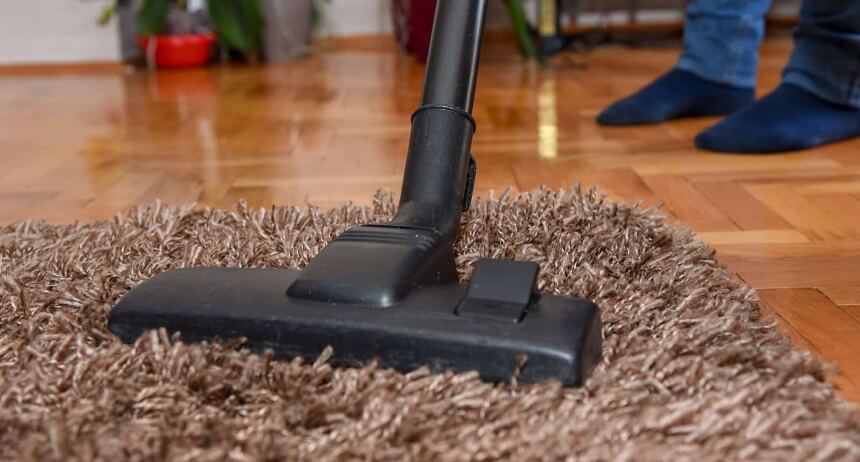
Dust and crumbs easily gets embedded into the fibers of rugs and carpets and they can cause proliferation of bacteria as well as odor and tear and wear of the fibers as they rot. Ideally, you should vacuum at least twice a week especially in areas such as doorways that have high traffic. According to Carpet and Rug Institute (CRI) Trusted Source The Basics of Carpet Cleaning: Create a Vacuum Schedule - CRI Carpet’s benefits are numerous for both homes and facilities. However, it’s imperative to properly maintain carpet to get the most out of these benefits. carpet-rug.org , you should vacuum in various directions using slow, repetitive and overlapping motions that will remove dust on all sides, including the edges. You should also clean up spillage, stains and food particles as soon as they appear on the surface to prevent them from settling into the fibers.
When considering how often you should vacuum a carpet, you also need to keep in mind the floor underneath it. Vacuum the hard floor weekly if it is mostly covered by a carpet and twice weekly if the carpet has a relatively small coverage area.
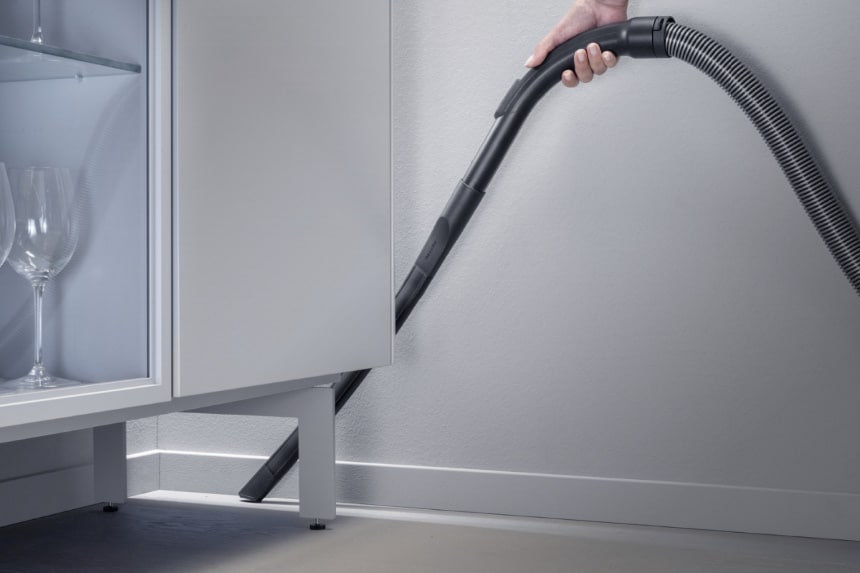
For best results, use a crevice tool to reach and clean the edges and tight corners and then vacuum.
Stairs and hallways have high traffic and require frequent vacuuming to keep them clean. Since they get dirty quickly, you should vacuum stairs after every few days.
Guest rooms and the space under the bed or behind cabinets are rarely used. The general consensus on how often you should vacuum under the bed and other spaces that do not get much use is after every 2 weeks. Bissell Cleanview would be a suitable choice for such spaces because of its extended cleaning reach. The upright and bagless model also features a washable filter and cyclonic suction system to prevent clogging.
Regular vacuuming will improve the air quality in your home and prevent health issues caused by dust and allergens. Consider the following tips to get the most out of your vacuum and to keep your space clean.
Regardless of how often you need to vacuum, you should ensure that you use clean filters that will not compromise the performance of the vacuum and redeposit dust particles on your floor and upholstery. A clean filter will also prevent accumulation of bacteria and reduce the likelihood of exposure to allergens Trusted Source 1926.1153 - Respirable crystalline silica Scope and application. This section applies to all occupational exposures to respirable crystalline silica in construction work, except where employee exposure will remain below 25 micrograms per cubic meter of air (25 μg/m3) as an 8-hour time-weighted average (TWA) under any foreseeable conditions. www.osha.gov .
Although rugs capture most of the bulk of the dust and dirt, you still need to clean the space underneath to prevent buildup of allergens. We have already discussed how frequent you should vacuum under rugs based on the coverage of the rug.
The best vacuums for tile floors feature HEPA (high efficiency particulate air) filters that capture 99.9% of dust, dirt and allergens such as pet dander and pollen to prevent health issues from airborne particles. These filters are washable and will save you on replacement.
Your flooring is one of the factors that influence how often you should vacuum your house. Vacuum heads are available in different types suitable for different floors and functions.
There are products designed for deep-pile carpeting and others for bare floors. It is important to choose the right one for your floor to avoid damage.
You don’t need to run a robot vacuum because they typically feature dirt detection and floor tracking sensors to clean your home. For other types of vacuums, you should move them slowly to allow for sufficient time for them to capture more dust and allergens. Move the vacuum from one end of the room to another and back again in overlapping motion for thorough cleaning.
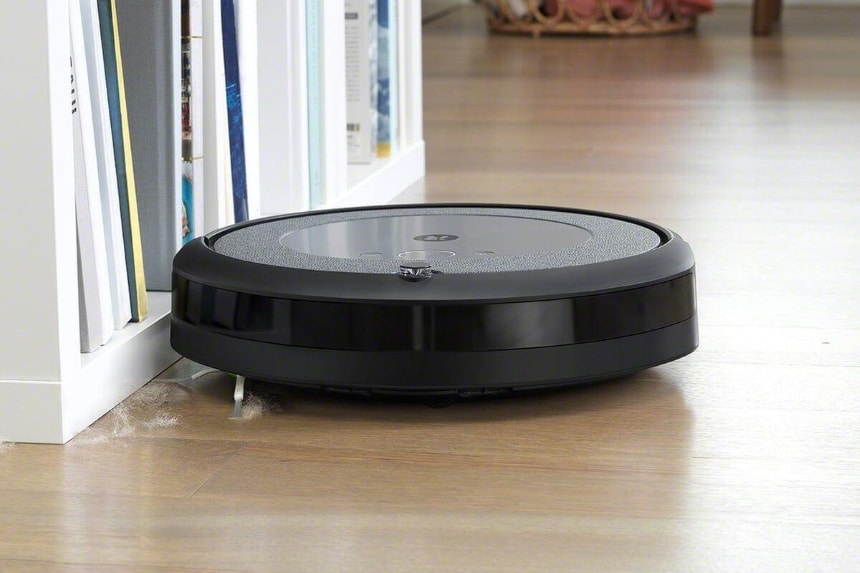
Your lifestyle, number of occupants, room usage, and type of floor are among the key factors that will help you to establish when to vacuum. For optimal air quality, you will also need a clean and effective filter such as HEPA that traps most of the airborne particles that cause infections and allergies. How often should you vacuum your home? A space with a large number of occupants requires frequent vacuuming because it is more likely to get dirty due to the increased traffic. You should vacuum daily if you have pets that go outside, weekly for hardwood and tile floors, and twice a week for rugs and carpets because of their propensity to attract dirt, pet dander and other allergens.
